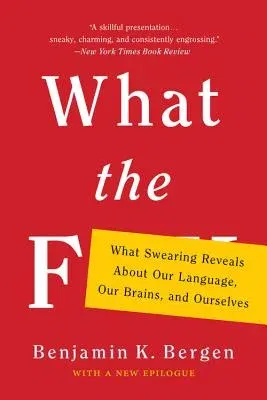It may be starred, beeped, and censored -- yet profanity is so
appealing that we can't stop using it. In the funniest, clearest study
to date, Benjamin Bergen explains why, and what that tells us about our
language and brains.
Nearly everyone swears-whether it's over a few too many drinks, in
reaction to a stubbed toe, or in flagrante delicto. And yet, we sit idly
by as words are banned from television and censored in books. We insist
that people excise profanity from their vocabularies and we punish
children for yelling the very same dirty words that we'll mutter in
relief seconds after they fall asleep. Swearing, it seems, is an
intimate part of us that we have decided to selectively deny.
That's a damn shame. Swearing is useful. It can be funny, cathartic, or
emotionally arousing. As linguist and cognitive scientist Benjamin K.
Bergen shows us, it also opens a new window onto how our brains process
language and why languages vary around the world and over time.
In this groundbreaking yet ebullient romp through the linguistic muck,
Bergen answers intriguing questions: How can patients left otherwise
speechless after a stroke still shout Goddamn! when they get upset?
When did a cock grow to be more than merely a rooster? Why is crap
vulgar when poo is just childish? Do slurs make you treat people
differently? Why is the first word that Samoan children say not mommy
but eat shit? And why do we extend a middle finger to flip someone the
bird?
Smart as hell and funny as fuck, What the F is mandatory reading for
anyone who wants to know how and why we swear.

